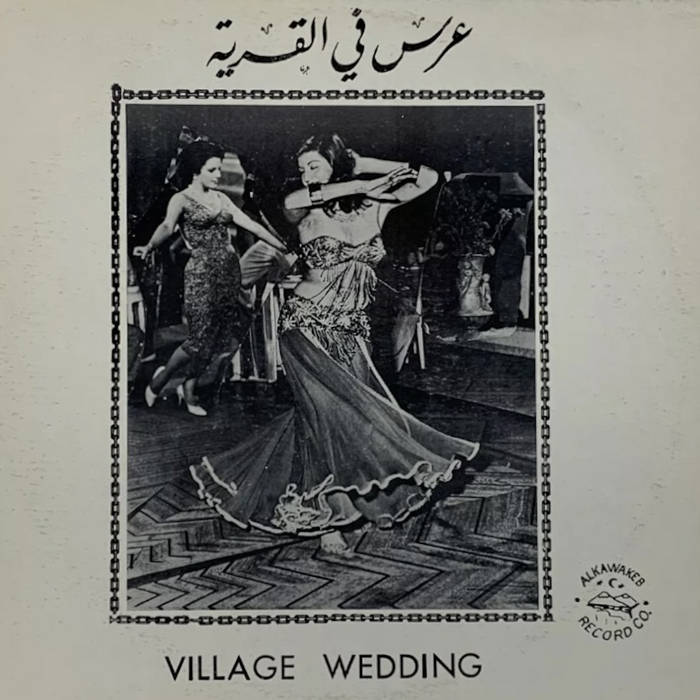We have another gem from Canary Records:
“Anthony M. Abraham (b. June 13, 1893 in Aintourine, present-day northern Lebanon; d. July 1978) arrived in the U.S. in 1921 and worked for decades as a machinist and crane operator at Crucible Steel Works. His label Alkawakeb, primarily reissued or pirated Arabic-language material during the 1950s and ‘60s.
He often retitled material from its sources and provided guesswork transliterations, making it complicated to track down the source recordings from which the album was made. In the case of this album, he transliterations on the jacket differed from the disc labels. We have retained the transliterated titles on the album jacket but we’ve given more commonly used transliterations of the artist names where we’re sure of them, and where there were obvious typos on the jacket for the English translations given (“punsh” vs “punish;” “belles” vs “bells”), we have corrected those.
Weddings are, of course, among the most emotionally direct points of connection between immigrants and their home of origin. The ceremonies include all kinds of complicated and powerful emotions and regional, familiar songs that bring an immigrant back into contact with their homeland. In the late 1920s, the single most popular recording among Slavic Americans was Pawlo Humeniuk’s “Ukrainian Wedding,” which spawned dozens of knockoffs and sold on the order of 100,000 copies, making it among the best-selling records for the immigrant market in American history. There were, at the time, touring troupes of performers who staged mock weddings for Slavic communities, giving them an excuse to enjoy everything that weddings have to offer — music, dancing, booze, and intense feelings — as a form of participatory theater.”



